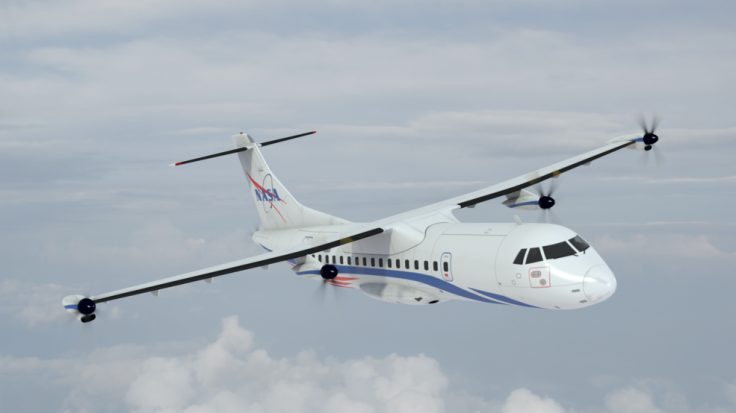Right now, everyone is glued to NASA's Mars mission and Perseverance rover landing related achievements. However, one should take a note that the space agency is currently investing itself into bringing one of the most substantial improvements here on Earth.
NASA is currently making an effort to make flights on our home planet more eco-friendly, along with its celestial endeavours.
As we all know, several automobile enterprises are exploring the possibilities of developing and producing electric cars for the mass in order to make use of the renewable energy in a bid to reduce the carbon emission, which is a huge concern for the entire world right now. However, there are other vehicles as well, that do not operate on the streets and here's where NASA comes in along with a new partnership with the aviation industry.
So, What's The Plan Here?

The American space agency wants to further advance designs and create breakthrough modelling tools for the future aircraft, which would use an Electrified Aircraft Propulsion (EAP) system. Add to that they are also pursuing proposals for ground and flight demonstrations for the subsonic aircraft, which would make use of the integrated megawatt-class powertrain systems.
NASA is looking to create and showcase the systems in flight by 2035 and they hope to introduce the EAP tech into global fleets by that time as well.
To be more precise, right now the space agency's aim is to incorporate the EAP system in smaller airplanes such as turboprops, regional jets and single aisle aircraft, including commercial flights.
The deadline it has given for the proposals is 20th April, 2021.
According to NASA, researches and studies have found that the electrification of aircraft propulsion would instill substantial influence on reducing energy use and carbon and nitrogen oxide emissions; which would positively contribute to climate change.
Why Is It Such A Pressing Issue?
According to the non-profit coalition, the Air Transport Action Group, 915 million tonnes of CO2 was produced by the flights only in 2019 itself, which is 2 percent of all human-induced CO2 emissions. This was before the pandemic halted the operations of the aviation industry.
However, the good news is that change could be just around the corner, as Boeing has recently vowed that it would start using 100 per cent sustainable fuels made from vegetable oil, animal fats and agricultural waste, in all its planes by 2030. EU's Aviation Safety Agency, on the other hand is planning to develop eco-ranking labels for flights, much like the carbon emission stats that one can currently see printed on train tickets in the region.
In order to achieve its goals, NASA has appointed its first-ever senior climate advisor this month, who has been given the task of working closely with the new Biden administration on its climate plans.









